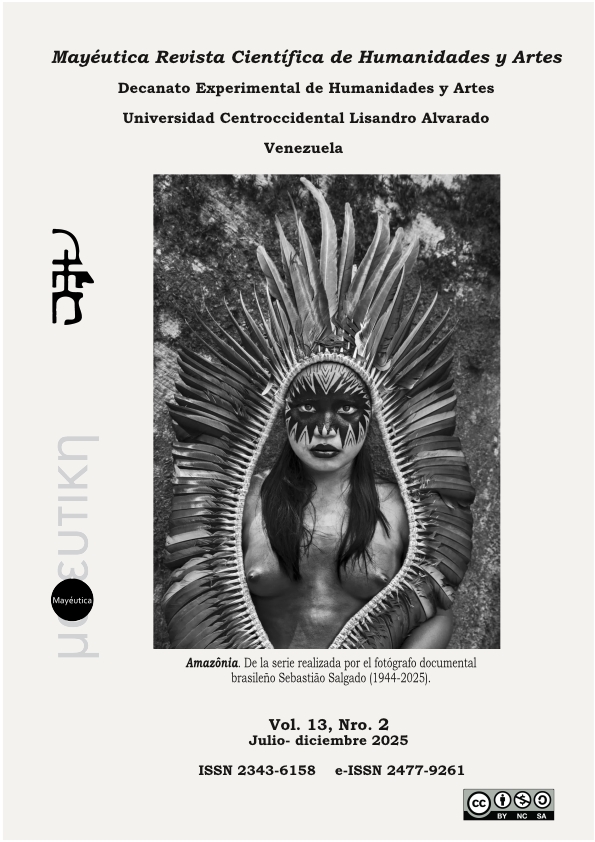Carabobo Battle
War, political imaginary and nation
DOI:
https://doi.org/10.5281/zenodo.15571702Keywords:
Patriotic History, Fiesta, Political Imaginary, Carabobo BattleAbstract
Carabobo is not only the site of one of the main SpanishAmerican battles for Independence. Depending on the interpretation we make of this event, from
military history to political history, passing through social history, in addition to being a war event, Carabobo has been the privileged source of our Patriotic
History and the matrix of our historical caudillismo. Therefore, beyond the historical romanticism that still dominates the approach to any event related to
the War of Independence, our purpose is to take advantage of the commemoration of this event, to try other readings aimed at investigating a process of longer duration, such as the formation of the Venezuelan State and the construction of our idea of Nation, as an imagined political community.
Downloads
References
Acosta, C. (1950). Doctrina. República de Venezuela, Ediciones del Ministerio de Educación Nacional.
Anderson, B. (1983). Comunidades imaginadas. Reflexiones sobre el origen y difusión del nacionalismo. Fondo de Cultura Económica.
Baczko, B. (1991). Los imaginarios sociales. Memorias y esperanzas colectivas. Ediciones Nueva Visión.
Blanco, E. (1979). Venezuela heroica. Monte Ávila Editores.
Bolívar, S. (1929). Cartas del Libertador. (Tomo II).Litografía y Tipografía del Comercio.
Briceño Iragorry, M. (1972). Introducción y defensa de nuestra historia. Monte Ávila Editores.
Cappelletti, A, J. (1992). Positivismo y evolucionismo en Venezuela. Monte Ávila Editores Latinoamericana.
Cassirer, E. (1975). Antropología filosófica. Fondo de Cultura Económica.
Castoriadis, C. (1975). L’Institution imaginaire de la société. Éditions du Seuil.
Congreso de la República. (1983). Congreso de Cúcuta 1821. (Tomo II). República de Venezuela. Ediciones Conmemorativas del Bicentenario del Libertador Simón Bolívar.
Cortés, S. R. (Comp.). (1971). Antología documental de Venezuela. 1492-1900. Editorial Pregón.
Ducrot, O. y Tzvetan T. (1995). Diccionario enciclopédico de las Ciencias del Lenguaje. (17° ed.). Siglo XXI editores.
Gellner, E. (1997). Nacionalismo. Ediciones Destino.
González, J. V. (1978). Selección histórica. Monte Ávila Editores.
Hobsbawm, E. (1992). Nations et nationalisme depuis 1789. Éditions Gallimard.
López Contreras, E. (2004). Bolívar conductor de tropas. Ediciones de la Presidencia de la República de Venezuela.
Lozano Cleves, A. (1980). Así se hizo la Independencia. Biblioteca Banco Popular.
Ministerio de Defensa. (1981) Memorias de O’Leary. (Vol. VIII). Grafesa.
Nectario María, H. (1980). La Batalla de Carabobo. 24 de junio de 1821. Villena Artes Gráficas.
Presidencia de la República. (1960). Pensamiento Político Venezolano del Siglo XIX. La Doctrina Conservadora. Fermín Toro. (Tomo I). República de Venezuela. Ediciones conmemorativas del Sesquicentenario de la Independencia.
Revista Bigott.(1997). Fundación Bigott.
Rivas Moreno, G. (Ed.). (1998). Correo del Orinoco. Fundación para la Investigación y la Cultura FICA. (Original publicado 1818-1821).
Published
How to Cite
Issue
Section

This work is licensed under a Creative Commons Attribution-NonCommercial-ShareAlike 4.0 International License.





